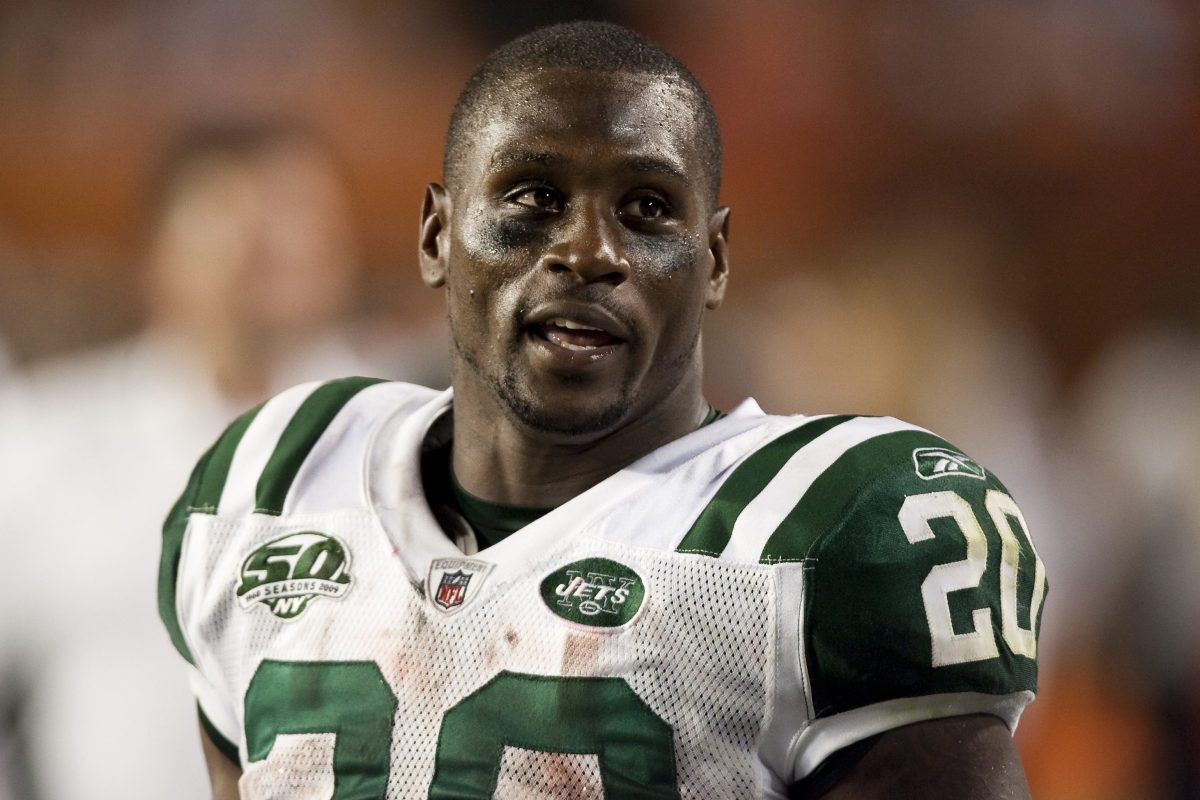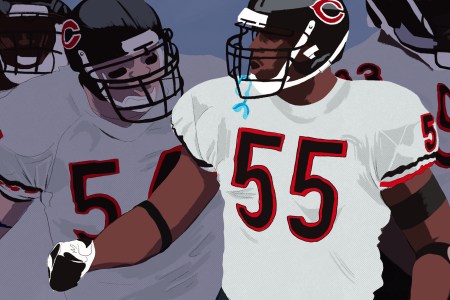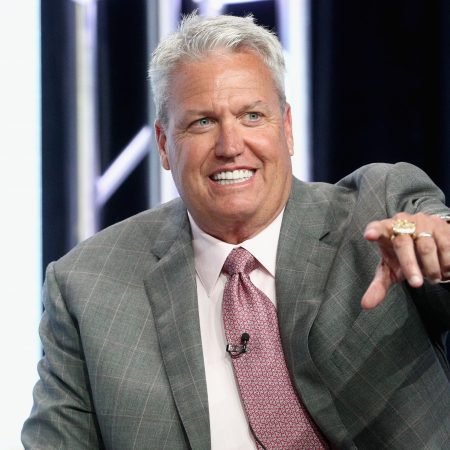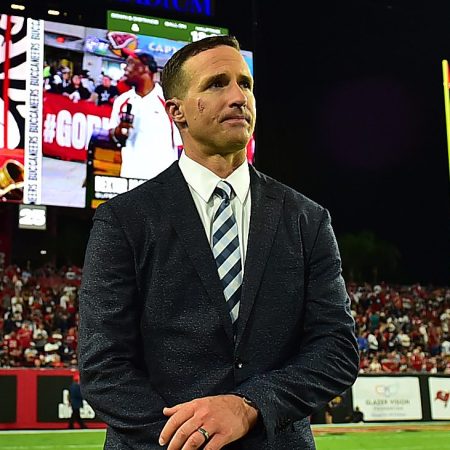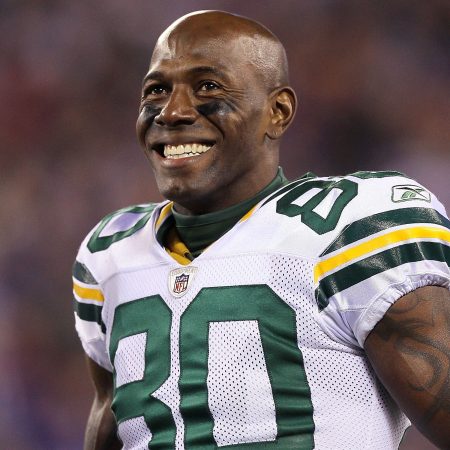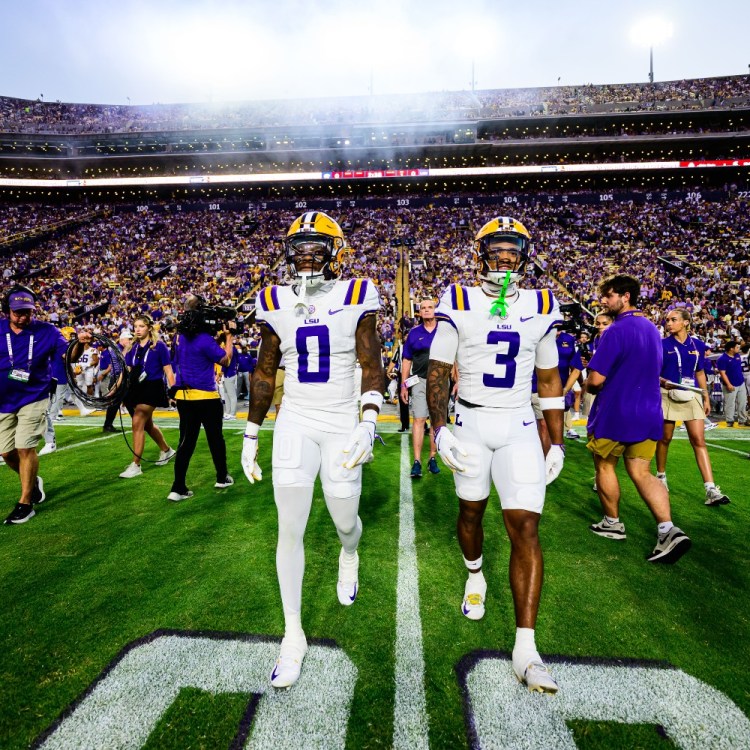This is Life After Football, a series that examines how current and former NFL players, coaches and executives are building a legacy beyond the gridiron.
Snagged seventh overall out of the University of Virginia by Arizona in the 2000 NFL Draft, Thomas Jones played 12 seasons in the National Football League and toted the rock for the Tampa Bay Buccaneers, Chicago Bears, Kansas City Chiefs and New York Jets in addition to the Cardinals. A member of the 10,000 rushing yards club who was nominated for the Pro Football Hall of Fame’s class of 2020 and starred in a losing effort for the Bears in Super Bowl XLI with 130 scrimmage yards, Jones hung up his spikes in 2011.
Although the 44-year-old swapped his cleats for loafers more than a decade ago, Jones is still right at home under the bright lights on the big stage with one slight tweak: NFL player Thomas Jones is now actor and producer Thomas Q. Jones.
“When you play in the NFL, people are going to recognize you and know who you are. But when you play in major markets like Chicago and New York, you can multiply that,” Jones tells InsideHook. “People knew me as Thomas Jones, No. 20, the football player. It was very hard for me to reinvent as I started to become an actor and a producer. So, I added my middle initial Q, which stands for Quinn. On any project I’m producing or acting in, I’ve made sure my name is credited as Thomas Q. Jones because I wanted to create a different person, a different identity to separate the football player from the actor, the producer and the man.”
Jones, whose acting credits include a part in 2015’s Straight Outta Compton and a recurring role in Netflix’s Luke Cage series, produced and is featured in Life After, a new eight-part docuseries on Prime Video that follows 12 retired NFL players as they tackle their post-football careers. Jones, who is one of the most notable names to be involved with Life After alongside DeMarcus Ware Spice Adams and Justin Forsett, got involved with the project because he believes the stories of the players featured in series need to be told.
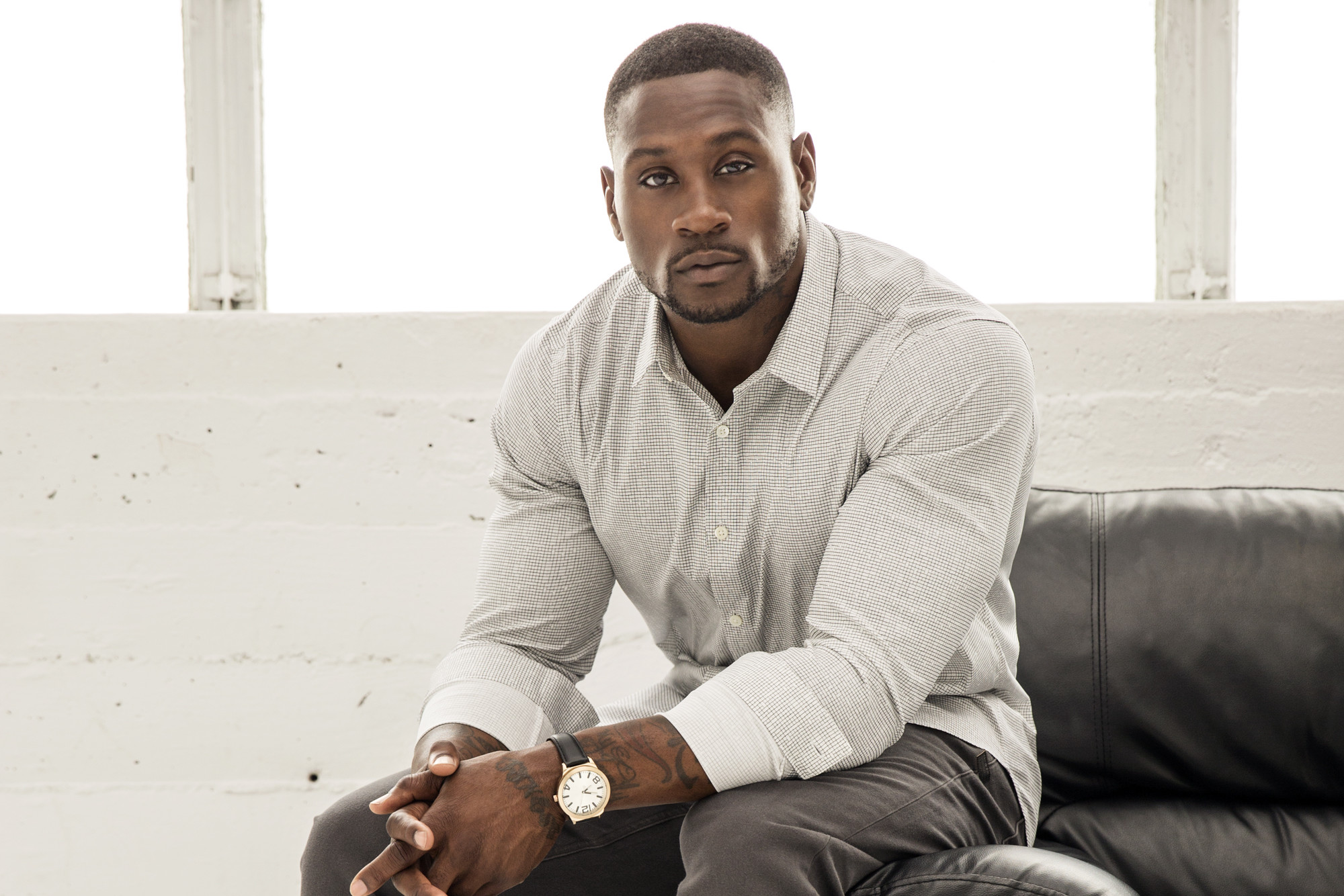
“A lot of people have the misconception that every NFL player is a millionaire who is set for life with a family that is there to support them. That’s just not the case in a lot of these situations,” he says. “I know it firsthand and I also know other guys who have had similar struggles that didn’t fare as well as I did.”
So how has Jones fared as an actor and what part has his former NFL career played in his new role? We asked.
InsideHook: Was a career as an actor something you were always interested in pursuing?
Thomas Jones: I’ve always been interested in entertainment and I had a record label when I was in New York with a few artists I was managing and producing. I made some really cool relationships, but I realized that wasn’t fulfilling enough because I was relying on other people’s hard work, dedication and ambition for me to be successful. I never saw myself as being the talent. Once I kind of fell into acting, it was challenging, which is what I was used to. It didn’t start off as a passion, it started off as just something to do. Then, I realized I had some natural talent so I moved to LA and enrolled in acting classes. I started to master the craft and that’s helped me evolve as a person.
Was there any part of your job as an NFL player that carried over into being an actor?
Obviously football is a lot more violent, but psychologically and emotionally they’re kind of cut from the same cloth. As a football player, you have your playbook and the more you know your plays, the more natural you are going to be on the field. You’re not thinking of what to do, you’re just reacting. It’s the same thing with acting. You have the script, which is similar to a playbook. You have your character, the story and your character arc. When the director says “Action,” you’re breathing life into the character you’ve created through the work you’ve done. Bam. You’re in the scene. It’s on. When the ball is snapped, it’s the same thing. It’s live. You’re in the scene.
Did you feel like you had to get into character, in a way, to play in the NFL?
Sunday is usually the most relaxed day of the week, but you have to psychologically make yourself upset, angry, violent and physically ready to go by the time you get to the stadium. And, you have to do that with your imagination, because the other team, aside from being your opponent, hasn’t really done anything to you for you to be that upset or violent towards them. You have to psych yourself into that person and then come out of it after the game. It’s the same thing after a scene. It takes a while to come back to who you naturally are outside of that character. Subconsciously, I think I had a lot of acting practice being an NFL player and I was able to tap into that.
More NFL
Former NFL Star Lance Briggs Wants to Change the World … With Comic Books
His upcoming graphic novel “The Trap” tackles issues of systemic racism and inequality in a maybe-not-so-surprising formatHas acting given you a different perspective on who you were as a football player?
It definitely has because now I understand what I was doing as a football player psychologically. Over the years I played football, I didn’t realize I was getting into character. I had a passion for the game and I wanted to win at all costs. I was kind of obsessed with that, but I didn’t understand that it was coming from a place of psychosis. It’s like a drug. The rush, the stakes, not knowing whether or not you’re going to win the Super Bowl or break your leg…that’s very hard to simulate outside of the NFL. You get addicted to that rush and then it’s not about the money anymore. It’s not about anything else except for the rush and that dopamine release.
Acting aside, has kicking that NFL habit been beneficial to you?
I would even say therapeutic because I was able to come back to reality. You can’t just crash into people every day. If someone shoves you in the back and you turn around and punch them in the face on the field, you get a 15-yard penalty. In real life, you get an assault charge and you go to jail. When you’re doing something every day at such a high level with limited consequences, you’re naturally going to react that way when you’re not on the field. A lot of people don’t understand that. But unless you’re in that environment and see what the stakes in the NFL are on a day to day basis witt the pressure and the criticism, you wouldn’t understand. It’s constant pressure. It never ends.
IDo you even still follow the NFL?
When I retired, I was burnt out on football, I had given so much of my life to it. I started playing when I was eight and I retired at 34. I was tired and I was ready to move on to something else. I haven’t been to an NFL game since 2018 when I went back to Chicago because they had an alumni weekend with a lot of the guys who were on the ’06 Super Bowl team. After we were recognized before the game, I left and went to the Cheesecake Factory to hang out with some of my friends. Then I went back to LA that night. I’ll always love football and appreciate the game, but I’ve given a lot of my life to the game and it makes me a different person than I am. I played football one way and, for me, it was hard to turn the switch off and on. It’s almost kind of a scary thing to go back to that.
Whether you’re looking to get into shape, or just get out of a funk, The Charge has got you covered. Sign up for our new wellness newsletter today.
